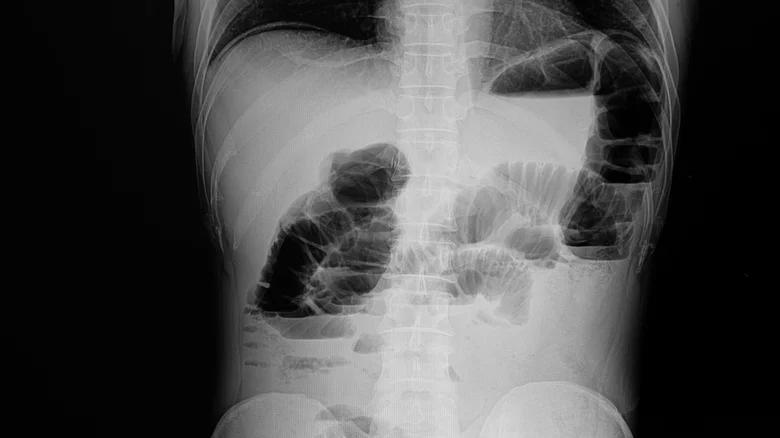Small bowel obstruction

Humans have about 22 feet of intestines coiled within the abdomen. It is amazing that kinks and tangles do not regularly happen. That said, things can sometimes go wrong. Twists in the bowels can cause the tube to become pinched, akin to how headphones can tangle in your pocket. When this happens in the intestines, it is called a small bowel obstruction. According to an article in StatPearls, the two most common causes of small bowel obstruction are postsurgical adhesions and incarcerated hernias. Adhesions are strands of sticky scar tissue that form inside the abdomen after surgery. They sometimes cause the bowels to narrow at distinct points.
The most common way the condition manifests is through “complaints of abdominal pain, distention, nausea, and vomiting.” During a physical examination, a clinician may find reduced and high-pitched bowel sounds, as well as abdominal tenderness that “may be diffuse or focal with the presence of distention.” Furthermore, the clinician may also notice peritonitis signs like “rebound, guarding, and rigidity.” A diagnosis can be made with a CT scan of the abdomen and pelvis, which would reveal the exact point in the intestines where the obstruction is occurring. An expert can see the distension from increased pressure on one side of the intestines and a narrowing on the other side of the blockage.
Treatment includes antibiotics, fluid resuscitation, pain control, and nasogastric decompression. In such cases, though, you shouldn’t put off a surgery consultation.






